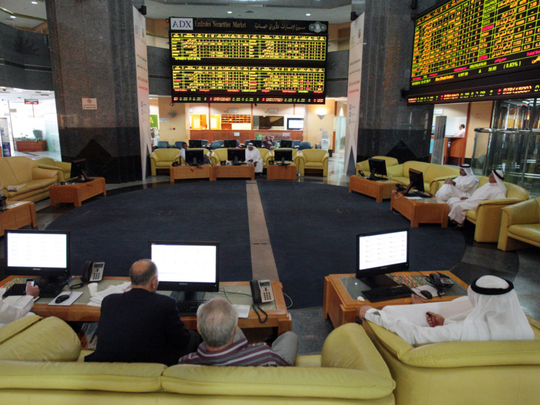
Dubai: A day’s difference sure turned out to be a big deal for Abu Dhabi’s stock market – a Dh107 billion sized difference. One company – Taqa – had everything to do with it.
Taqa’s absorption of ADPower’s assets to create one of the region’s leading utility assets on July 1 led to a Dh107 billion surge in market cap of Abu Dhabi Securities to Dh607 billion. It had been a shade under Dh500 billion on June 30. (Taqa is otherwise known as Abu Dhabi National Energy Company.)
After the COVID-19 sized hit stock markets had taken during April, these numbers represent a significant recovery. Khaleefa Al Mansouri, ADX's Chief Executive, makes this point: “Especially given the obvious challenges, our performance demonstrates that ADX is delivering on its key strategic objective of becoming more liquid and more accessible to a broader mix of investors.
“ADX has coordinated closely with its listed companies to build a robust and increasingly international capital market, an essential pillar of any economy.”
Abu Dhabi Securities Exchange, as part of efforts to give the market more depth, will list an exchange-traded fund for the first time next month, according to Bloomberg. It is also planning to introduce derivatives such as futures contracts soon. The ETF will be Sharia-compliant.
Opening up
In another move to boost volumes, more companies on ADX are raising foreign ownership limits, and in the case of Wahat Al Zaweya Holding shot up from 0 per cent to 49. Abu Dhabi Islamic Bank, another heavyweight, now allows 49 per cent of its shares to be owned by foreign investors, as against 25 per cent earlier.
Since the end of 2019, an additional Dh6.3 billion of stock in these companies is currently accessible to foreign investors. As of now, 55 companies on ADX allow foreign investors, representing 80 per cent of the total exchange.
We expect these to include ETFs and REITs, as well as others, on a sophisticated and innovative digital platform, and with greater levels of transparency
Localised interest
Expatriate investors too have been raising their exposures to listed companies on ADX. There has been a 25 per cent increase in non-UAE nationals registering compared to first six months of 2019. The largest proportion of expat investors were from the UK, who traded Dh5.2 billion of shares in the period, followed by those from the US (Dh4.1 billion) and then Luxembourg (Dh1.2 billion.)
“We can’t predict when the world will turn the corner - but there are significant grounds for optimism in Abu Dhabi and at ADX,” said Al Mansouri.
“Our performance so far this year shows that we are as well placed as any exchange in the world to enable investors to take advantage of improving market conditions, by increasing access, liquidity and the range of products available, an essential component of a healthy and growing economy.
“We expect these to include ETFs (exchange traded funds) and REITs (real estate investment trusts), as well as others, on a sophisticated and innovative digital platform, and with greater levels of transparency.
“We therefore remain confident of meeting our objective of being ‘Your Market of Choice’ - one that shapes the 2020s.”
* During this period, Dh22.5 billion was paid out in cash dividends, up from Dh20.3 billion and representing an overall yield of almost 5.3 per cent, based on the market capitalization of those companies which paid dividends to their shareholders.








